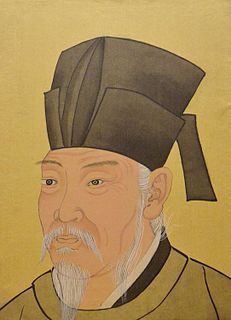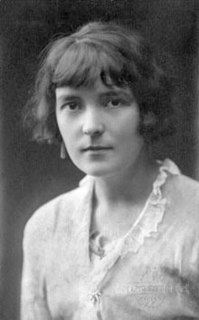A Quote by Edna O'Brien
Later as the day cools and they have gone in, the cry of the corncrake will carry across those same fields and over the lake to the blue-hazed mountain, such a lonely evening sound to it, like the lonely evening sound of the mothers, saying it is not our fault that we weep so, it is nature's fault that makes us first full, then empty.
Related Quotes
My grandmother took me to church on Sunday all day long, every Sunday into the night. Then Monday evening was the missionary meeting. Tuesday evening was usher board meeting. Wednesday evening was prayer meeting. Thursday evening was visit the sick. Friday evening was choir practice. I mean, and at all those gatherings, we sang.
The setting of a great hope is like the setting of the sun. The brightness of our life is gone. Shadows of evening fall around us, and the world seems but a dim reflection - itself a broader shadow. We look forward into the coming lonely night. The soul withdraws into itself. Then stars arise, and the night is holy.
It's lonely to say goodbye. Very lonely. Please. Cry with me. Maybe there's nothing we can do about this. But at least, for now...cry with me. Like your entire body...is screaming at the sky. Like it's raging against the world. I lost something. And I don't have a single guarantee. The fear of living in this world again after that...I have only a shred of hope to sustain me. So I want you at least...to cry. Cry. Cry with me. Like the day you were first born into this world.
The fields are snowbound no longer;
There are little blue lakes and flags of tenderest green.
The snow has been caught up into the sky-
So many white clouds-and the blue of the sky is cold.
Now the sun walks in the forest,
He touches the bows and stems with his golden fingers;
They shiver, and wake from slumber.
Over the barren branches he shakes his yellow curls.
Yet is the forest full of the sound of tears....
A wind dances over the fields.
Shrill and clear the sound of her waking laughter,
Yet the little blue lakes tremble
And the flags of tenderest green bend and quiver.
Compassion asks us to go where it hurts, to enter into the places of pain, to share in brokenness, fear, confusion, and anguish. Compassion challenges us to cry out with those in misery, to mourn with those who are lonely, to weep with those in tears. Compassion requires us to be weak with the weak, vulnerable with the vulnerable, and powerless with the powerless. Compassion means full immersion in the condition of being human.
Think of the sound you make when you let go after holding your breath for a very, very long time. Think of the gladdest sound you know: the sound of dawn on the first day of spring break, the sound of a bottle of Coke opening, the sound of a crowd cheering in your ears because you're coming down to the last part of a race--and you're ahead. Think of the sound of water over stones in a cold stream, and the sound of wind through green trees on a late May afternoon in Central Park. Think of the sound of a bus coming into the station carrying someone you love. Then put all those together.
There are a lot of people who can't find housing, who worry about the future, and that insecurity and precarity in their own lives is being exploited by some politicians who are using it to divide us by saying, 'hey it's the fault of new Canadians, it's the fault of refugees, it's the fault of Muslims.'
Everything comes out of nothingness and goes back into nothingness. Hence there is no need for attachment, because attachment will bring misery. Soon it will be gone. The flower that has blossomed in the morning, by the evening will be gone. Don't get attached; otherwise in the evening there will be misery. Then there will be tears, then you will miss the flower. Enjoy while it is. But remember, it has come out of nothing, and it will go back to nothing. And the same is true about everything, even about people.







































